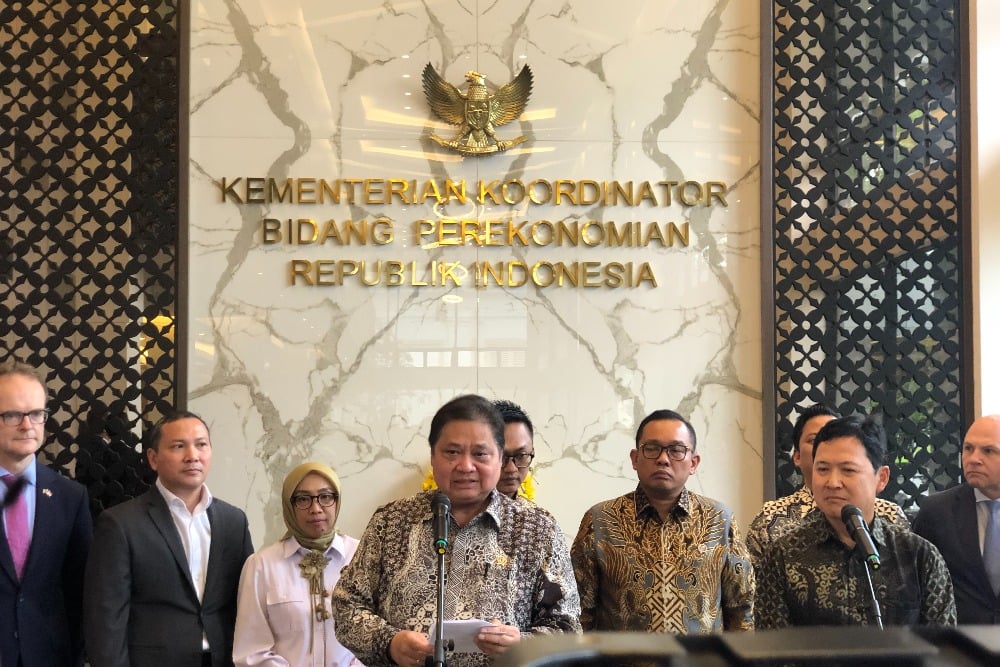Indonesia is making significant strides towards achieving its net-zero emissions target by 2060, with the support of the Just Energy Transition Partnership (JETP). This collaboration has led to the commitment of funding for 54 energy transition projects, marking a pivotal moment in the nation's shift towards sustainable energy.
Overview of the Just Energy Transition Partnership
Launched during the G20 Summit in Bali on November 15, 2022, the JETP is a collaborative initiative between the Indonesian government and the International Partners Group (IPG). The IPG includes countries such as Japan, the United States, Canada, Denmark, the European Union, Germany, France, Norway, Italy, and the United Kingdom. With an initial commitment of $20 billion, the partnership aims to accelerate Indonesia's transition from fossil fuels to renewable energy sources.
Financial Commitments and Project Allocation
Under the JETP framework, 54 energy transition projects have secured international funding commitments totaling $1.1 billion. Of this amount, nine projects have received financing through loans or equity investments, while the remaining 45 projects have been granted $233 million in the form of grants. Additionally, the government has obtained a $1 billion guarantee from Multilateral Development Banks to expedite the implementation of these clean energy initiatives.
Strategic Focus Areas of JETP in Indonesia
The JETP's Comprehensive Investment and Policy Plan (CIPP) outlines five key investment areas to facilitate Indonesia's energy transition:
- Acceleration of Dispatchable Renewable Energy Deployment: This involves developing new renewable energy plants, expanding existing facilities, and enhancing their performance to ensure a reliable energy supply.
- Early Retirement of Coal-Fired Power Plants: By phasing out coal power plants ahead of schedule, Indonesia aims to reduce air pollution and decrease carbon emissions from the power sector.
- Transmission and Grid Expansion: Upgrading and expanding the electricity grid is essential to accommodate increased renewable energy generation and ensure grid stability.
- Renewable Energy Value Chain Enhancement: Supporting the development of domestic industries related to renewable energy will bolster the local economy and create job opportunities.
- Acceleration of Variable Renewable Energy Deployment: Increasing the share of renewable energy sources that depend on weather conditions, such as solar and wind, is crucial for diversifying Indonesia's energy mix. jetp-id.org
Implications for Indonesia's Energy Landscape
The implementation of these projects is expected to have far-reaching impacts on Indonesia's energy sector:
- Reduction in Carbon Emissions: Transitioning to renewable energy sources will significantly lower greenhouse gas emissions, contributing to global climate change mitigation efforts.
- Economic Growth: Investments in renewable energy infrastructure can stimulate economic development by creating jobs and fostering technological innovation.
- Energy Security: Diversifying the energy portfolio reduces reliance on imported fossil fuels, enhancing national energy security.
Challenges and Considerations
Despite the promising outlook, several challenges must be addressed to ensure the success of these initiatives:
- Funding Disbursement: Ensuring timely and efficient allocation of funds is critical for project implementation. Previous experiences have shown delays in fund disbursement, which can hinder progress.
- Technical and Logistical Hurdles: Developing renewable energy infrastructure requires overcoming technical challenges, such as integrating variable energy sources into the existing grid and managing land use.
- Stakeholder Coordination: Effective collaboration among government agencies, private sector partners, and local communities is essential to align objectives and address concerns.
Conclusion
The Just Energy Transition Partnership's commitment to funding 54 energy transition projects marks a significant milestone in Indonesia's journey towards a sustainable energy future. By focusing on key investment areas and addressing potential challenges, Indonesia can pave the way for a cleaner, more resilient energy sector that supports both environmental and economic objectives.
Read More






 Sunday, 22-02-26
Sunday, 22-02-26







